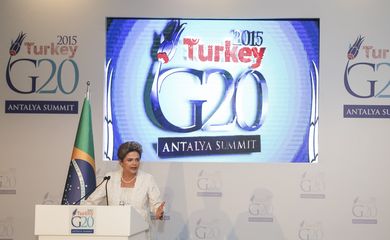Levy: meeting surplus target harder after budget vote delayed


Finance Minister Joaquim Levy 

Finance Minister Joaquim Levy said today (Nov. 23) that putting off the vote on the budget in Congress makes it more difficult to meet the surplus target of 0.6% of the GDP in 2016. Levy was delivering a speech during a seminar called Risk Re-evaluation – Brazil, promoted by the Getúlio Vargas Foundation (FGV), in Rio de Janeiro.
“Since the vote wasn't held in October, and will be held who knows when, we're looking at two months of revenue lost. Does that mean we'll have to raise the tax more than we want to? Perhaps. Or maybe cut spending more than what had been planned? Maybe. You start postponing things, and, of course, 0.7% distributed throughout the year means something, and the same rate in eight or nine months' time is a lot more difficult. It's pure math, and people have to understand that.”
Levy argued that the country needs to implement institutional adjustments so that the economy runs “more smoothly and predictably.” Also in his speech, the minister pointed out that Brazil needs new forms of financing, as the intense growth experienced by the country has made current financing mechanisms obsolete, some of which are over ten years old now, like the savings account and the Guarantee Fund for Length of Service (known in Portuguese as caderneta de poupança and the FGTS, respectively). “Today's challenge is to attain fiscal solidity so our market can look at the long run, which is what will make financing easier in the Brazilian economy,” he added.
The minister listed the steps that should be taken to improve the scenario facing the country: “We have a number of growth vectors, both for next year and for the upcoming years. All we need now is to have a little ambition and go for what's really necessary to achieve that: certain institutional adjustments to make the economy run more smoothly and predictably.”
Among the sectors that could contribute to short-term growth, the minister mentioned tourism—which could benefit from the current low exchange rate and from the 2016 Olympic Games—and industry, through the replacement of imports. “These are the two most obvious ones,” he said, further mentioning agribusiness and aviation.
The minister went on to say that there is already an understanding of what the fiscal adjustment is, and that the discussion should now move from short-term adjustment to public spending in Brazil.
Translated by Fabrício Ferreira
Fonte: Levy: meeting surplus target harder after budget vote delayed


